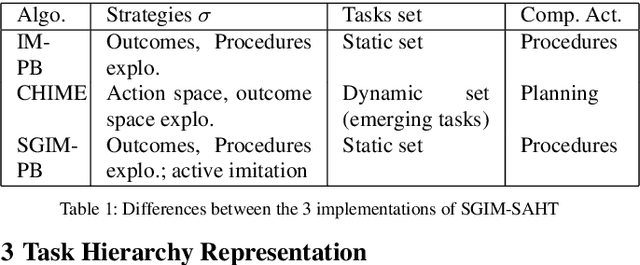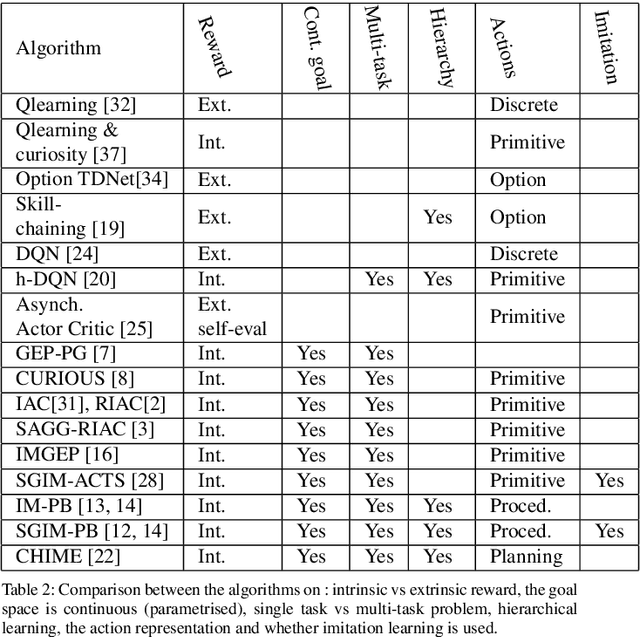Robots Learn Increasingly Complex Tasks with Intrinsic Motivation and Automatic Curriculum Learning
Paper and Code
Feb 11, 2022



Multi-task learning by robots poses the challenge of the domain knowledge: complexity of tasks, complexity of the actions required, relationship between tasks for transfer learning. We demonstrate that this domain knowledge can be learned to address the challenges in life-long learning. Specifically, the hierarchy between tasks of various complexities is key to infer a curriculum from simple to composite tasks. We propose a framework for robots to learn sequences of actions of unbounded complexity in order to achieve multiple control tasks of various complexity. Our hierarchical reinforcement learning framework, named SGIM-SAHT, offers a new direction of research, and tries to unify partial implementations on robot arms and mobile robots. We outline our contributions to enable robots to map multiple control tasks to sequences of actions: representations of task dependencies, an intrinsically motivated exploration to learn task hierarchies, and active imitation learning. While learning the hierarchy of tasks, it infers its curriculum by deciding which tasks to explore first, how to transfer knowledge, and when, how and whom to imitate.
 Add to Chrome
Add to Chrome Add to Firefox
Add to Firefox Add to Edge
Add to Edge